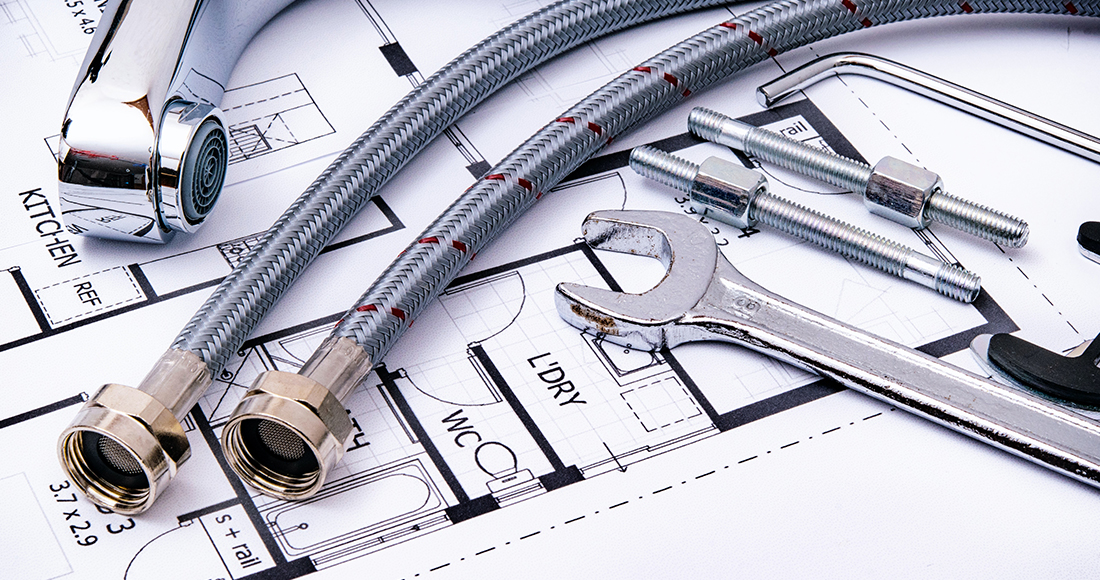
Plumbing is an essential aspect of any building, be it a residential property or a commercial establishment. Both residential and commercial plumbing systems serve the fundamental purpose of providing clean water and disposing of wastewater. However, there are significant differences between the two that are important for property owners and plumbing professionals to understand. This knowledge helps ensure the appropriate plumbing solutions are implemented, while also facilitating proper maintenance and compliance with regulatory requirements.
Scope of Work
The scope of work in residential and commercial plumbing projects varies in several aspects, including the types of plumbing systems involved, the size and complexity of projects, and the specific requirements unique to each sector.
Residential plumbing typically involves smaller-scale projects within individual homes, apartments, or condominiums. The plumbing systems in these settings usually consist of a single water source, a relatively simple network of pipes, and a limited number of fixtures, such as sinks, toilets, and showers.
On the other hand, commercial plumbing projects often take place in larger establishments, such as office buildings, shopping centres, schools, and hospitals. These settings demand more complex plumbing systems to accommodate the increased water usage, larger number of fixtures, and unique requirements that arise due to the nature of the commercial activity.
A restaurant may require grease traps and specialised drainage systems to manage the disposal of food waste, while a hospital may need advanced water filtration and treatment systems to maintain strict sanitation standards.
The scale and complexity of commercial plumbing projects often necessitate a higher level of expertise from plumbers, as well as increased coordination with other trades, such as electricians and HVAC technicians.
Codes and Regulations
Another key difference between commercial and residential plumbing lies in the regulatory frameworks governing each sector. While both types of plumbing must adhere to local and national building codes, commercial plumbing projects often face more stringent regulations due to the increased risks and potential impacts associated with larger, more complex plumbing systems.
Permits and inspections are a crucial part of the plumbing process for both residential and commercial projects. However, commercial plumbing permits are typically more expensive and require a longer approval process, as these projects often involve additional safety and environmental considerations.
For example, commercial buildings may need to comply with specific fire protection regulations, which could involve the installation of fire sprinkler systems or the use of fire-resistant materials in the plumbing infrastructure. Furthermore, commercial plumbing projects may be subject to additional inspections to ensure compliance with accessibility requirements and other industry-specific regulations.
Equipment and Technology
The equipment and technology employed in commercial and residential plumbing projects also differ significantly. While residential plumbers typically rely on standard tools and techniques to install and maintain plumbing systems, commercial plumbers often work with larger, more advanced equipment and specialised tools designed to handle the increased demands of commercial plumbing systems.
For instance, commercial plumbers may utilise high-pressure water jetting systems to clear blockages in large diameter pipes or advanced leak detection technology to identify issues in complex plumbing networks. Additionally, commercial plumbing projects often involve the installation and maintenance of energy-efficient systems, such as high-capacity tankless water heaters or water-saving fixtures, which require specialised knowledge and expertise.
Cost Considerations
Cost considerations play a significant role in the differences between commercial and residential plumbing projects. As commercial plumbing systems are generally larger and more complex, they often require a greater investment in terms of materials, labour, and maintenance.
Materials used in commercial plumbing projects are typically of a higher grade and more durable, as they must withstand increased wear and tear due to higher usage rates. Consequently, these materials are often more expensive than those used in residential plumbing projects.
Labour costs also tend to be higher for commercial plumbing jobs, as they require skilled plumbers with expertise in commercial plumbing systems and regulations. Additionally, commercial plumbing projects often have more stringent deadlines and may require work to be completed during non-business hours or weekends, which can result in increased labour costs.
Maintenance and repair expenses are another cost consideration that differs between commercial and residential plumbing projects. Due to the scale and complexity of commercial plumbing systems, these projects often require more frequent and specialised maintenance to ensure optimal performance and prevent costly breakdowns. This can include regular inspections, cleaning, and replacement of worn components.
Conversely, residential plumbing systems generally have lower maintenance and repair costs, as they are smaller and less complex. However, homeowners should still invest in regular maintenance, such as periodic pipe inspections and drain cleaning, to prevent costly issues down the line.
When evaluating the overall costs of a plumbing project, property owners must consider not only the initial investment but also the long-term expenses associated with maintenance and repairs. By understanding the cost implications of commercial and residential plumbing projects, property owners can make informed decisions and budget appropriately for their plumbing needs.
The differences between commercial and residential plumbing are substantial and can impact various aspects of a plumbing project, from the scope of work and regulatory compliance to the equipment and technology utilised and the overall costs involved. By recognizing these distinctions, property owners and plumbing professionals can ensure that appropriate plumbing solutions are implemented and maintained in a manner that meets the unique requirements of each sector.
Property owners, whether managing residential or commercial properties, should seek the expertise of qualified plumbing professionals who specialise in their respective sectors. This specialisation ensures that the plumbing systems are installed, maintained, and repaired in accordance with the relevant codes and regulations, while also addressing the specific challenges and demands unique to each setting.
Ultimately, a well-functioning plumbing system is vital to the comfort, safety, and efficiency of any building, regardless of its purpose. By understanding the key differences between commercial and residential plumbing, property owners can make informed decisions, collaborate effectively with plumbing professionals, and ensure the long-term success of their plumbing projects.
